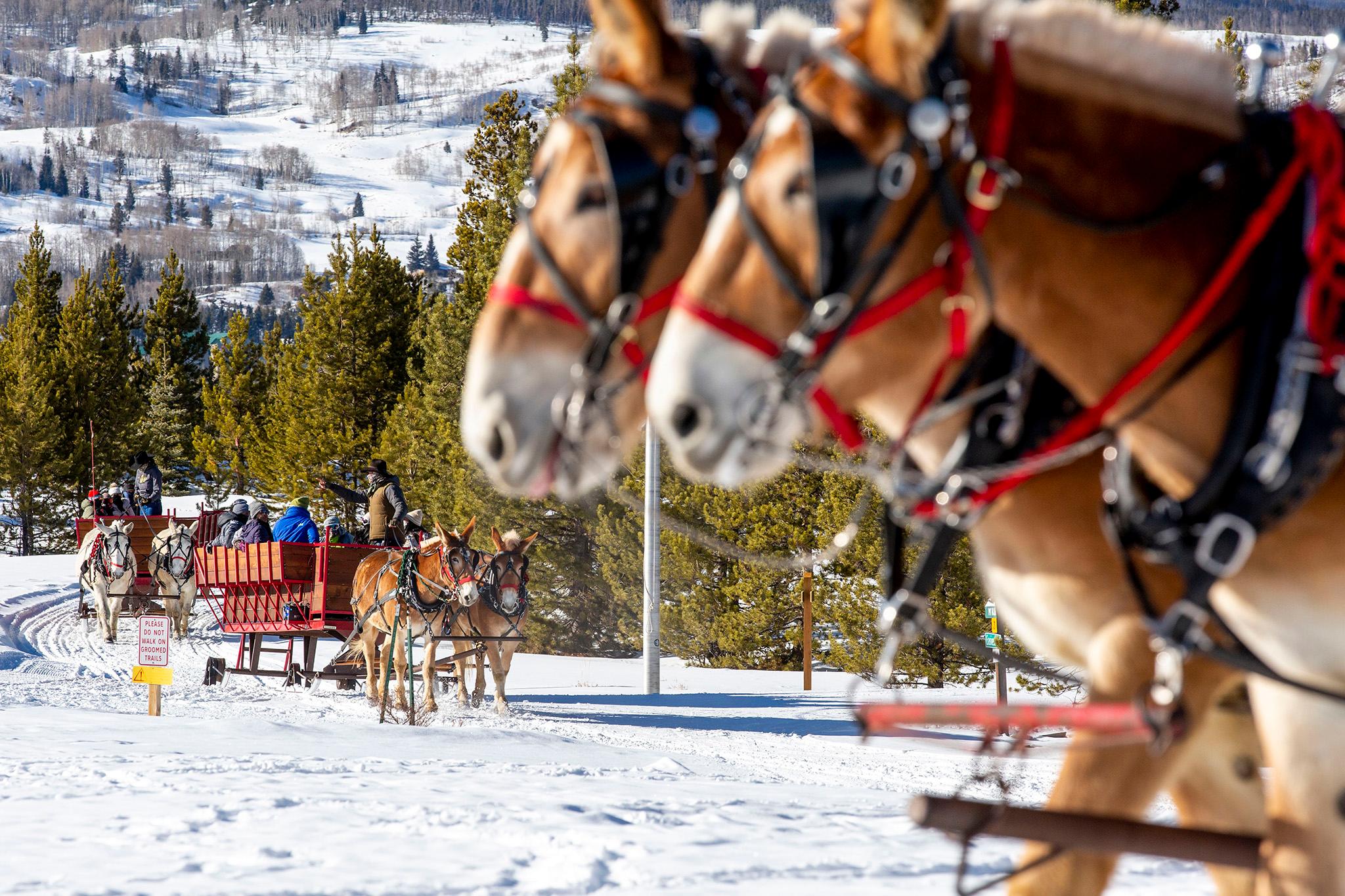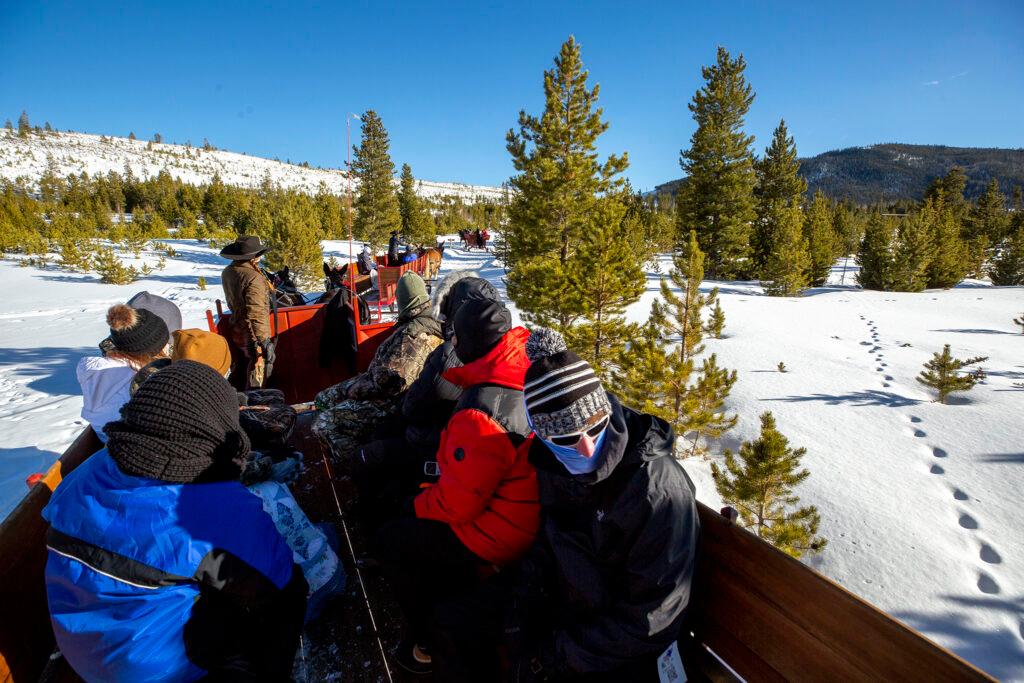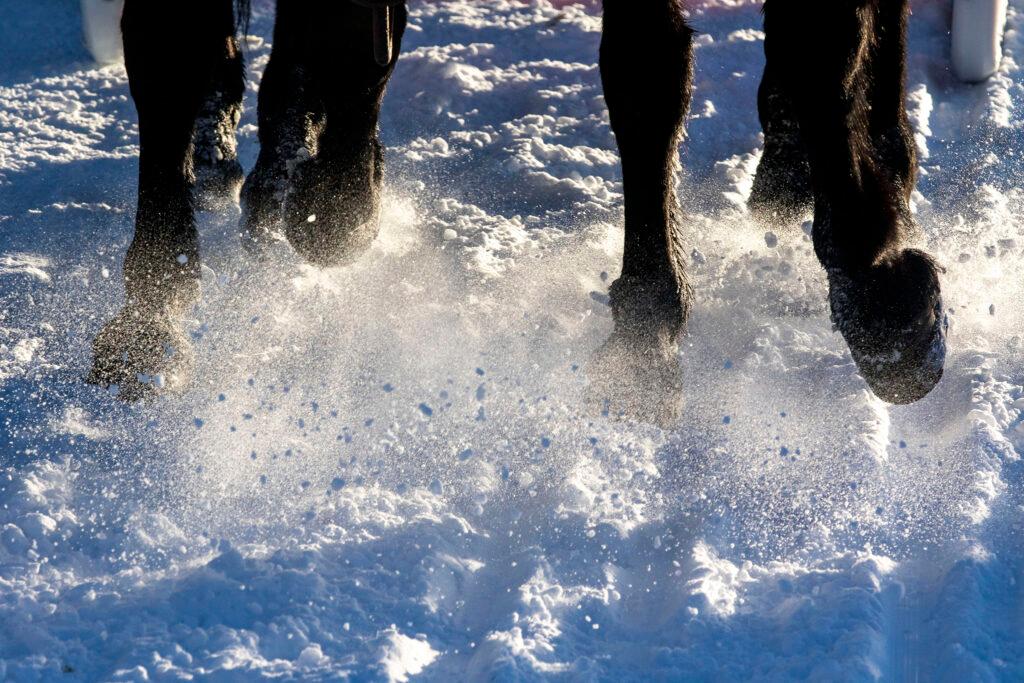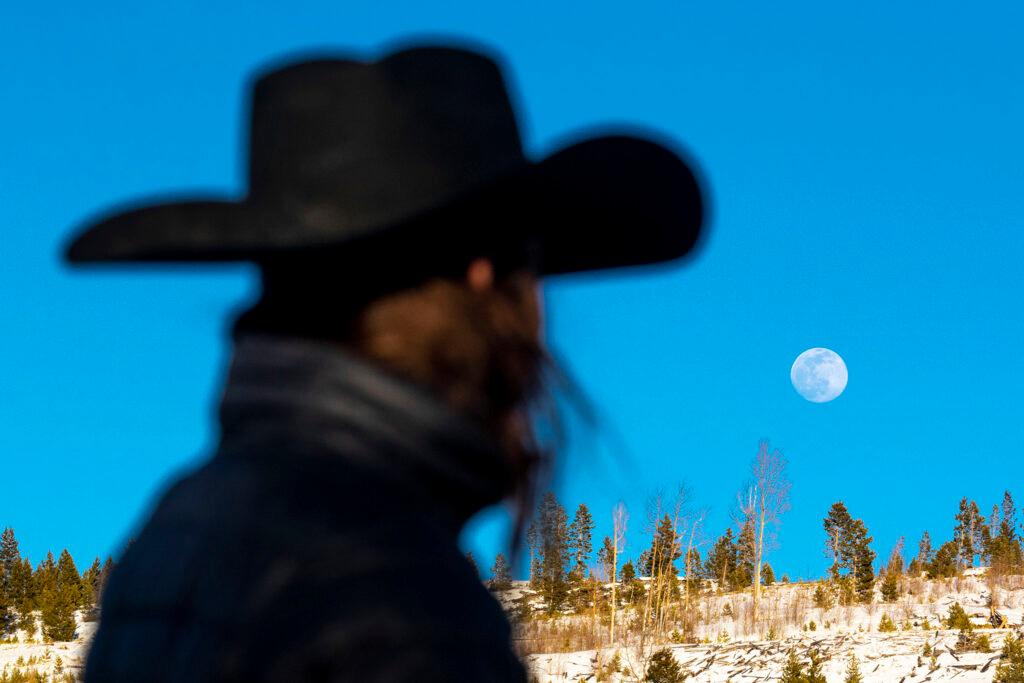
John Lampe employs about 20 people, a dozen mules and one horse running sleigh rides out of Frisco.
The pandemic poses unique challenges for Lampe. One of the biggest is that he can’t use his heavy windproof blankets to keep customers warm.
“People have gotten used to things like that in the world we live in now,” Lampe said. “I would have never thought the day would come where you couldn’t supply blankets for people.”
Lampe’s winter business revolves around dinner in a giant canvas tent about 20 minutes outside of town. The operation includes cooks, people who take reservations and the sleigh drivers — who double as waiters. In good years, Lampe serves 500 people a day.
When the pandemic shut dinner rides down last March, Lampe had to fall back on smaller scenic rides. Instead of a meal, guests take in the view of the mountains with a cup of hot cocoa. His revenues dropped roughly 70 percent.
“The scenic rides don’t make it up totally, and the scenic rides were down, too,” Lampe said.
Leisure and hospitality businesses are among the hardest hit by the pandemic — across the U.S. and in Colorado. The state lost more than 36,000 jobs in leisure and hospitality in December alone.
Lampe is part of a vast network of such businesses that rely heavily on spillover from outdoor tourism in Colorado’s mountain towns. The steep drop-off in travel and capacity constraints have walloped the eating, drinking and entertainment establishments that serve Colorado’s resort areas.
Even the socially distanced appeal of Colorado's slopes and trails can't drum up the same tourism numbers
The pandemic has boosted Colorado’s outdoorsy appeal, helping draw visitors to certain spots. But a lot of people still aren’t comfortable getting on a plane — and international visitation is basically nonexistent.
Travelers spent $9.7 billion in Colorado between March and January, about half of what was spent during the same timeframe in 2019, according to the Colorado Tourism Office.
“It’s been challenging to keep employees working … while also trying to keep yourself afloat so you don’t go under,” Lampe said.

Lampe hasn’t had to lay off long-time employees, but his winter seasonal staff is smaller than usual. Changing state and local protocols for COVID-19 make it difficult to plan ahead.
“Week to week, a lot of times you didn’t know what the rules were going to be,” Lampe said.
Kate Watkins, the chief economist for Colorado’s state legislature, said that while damage to restaurants, hotels and other service-oriented businesses is happening across the state, it can take a more severe toll on resort communities that don’t have a lot of other economic drivers.
“It can be certainly very devastating for these communities. If their lifeblood is leisure and hospitality, then this is leaving a real hole in their economic communities,” Watkins said.
The recent decline in COVID-19 cases is giving some business owners hope. Lampe was able to do his first dinner sleigh ride in almost a year when Summit County eased restrictions on indoor dining a few weeks ago. He’s now allowed to operate at 25 percent capacity.

At the Frisco Inn on Galena, a 15-room boutique hotel in Frisco, owner Bruce Knoepfel is heartened by seeing some of his repeat guests return recently. After a decent summer, occupancy plummeted when COVID-19 cases spiked early in winter. Currently, the hotel is bringing in about 60 percent of its usual revenue for this time of year, Knoepfel said.
He expects visits to climb into the summer as more people get vaccinated and are seeking an outdoor escape from their pandemic routines.
“People need to go somewhere, and they’re feeling like doing [outdoor activities] is safer than many of the other alternatives,” Knoepfel said.
Winter weather continues to challenge restaurants even as some travelers seek a classic après ski
A half hour down the road from Frisco, in Eagle County, Andy Kaufman owns the Minturn Saloon. It’s the terminus of the Minturn mile, the popular backcountry ski route that starts at the top of Vail mountain.
“I didn’t see a path forward last March and April. I was truly feeling like an existential issue,” Kaufman said.
He thinks he’s through the worst of it. His business was able to survive and retain staff through the spring with a federal loan through the Payroll Protection Program. During the summer months, the outdoor riverside seating did a booming business, he said.
Now, he’s winterized the deck somewhat, and there’s a roomy dining area for social distancing. If he didn’t have the outdoor seating, and a large indoor space, he’s not sure the saloon would have survived.
“There are many wonderful restaurants who just don’t have that space,” Kaufman said. “It doesn’t matter how good of an operator, or how good your food is — if you don’t have the space, you’re not going to be able to exist.”

Kaufman is one of the lucky ones. Still, he’s running with a pared-down staff. Whereas in the past he might have three or four waiters on a busy night, now there’s only two. Instead of having two bartenders over the course of an evening — there’s only one. And there’s no host.
Kaufman sometimes has to turn people away who show up without a reservation looking for the classic après ski experience.
“Everybody misses that feeling of being in a lively crowd, but this too shall pass,” he said.



















